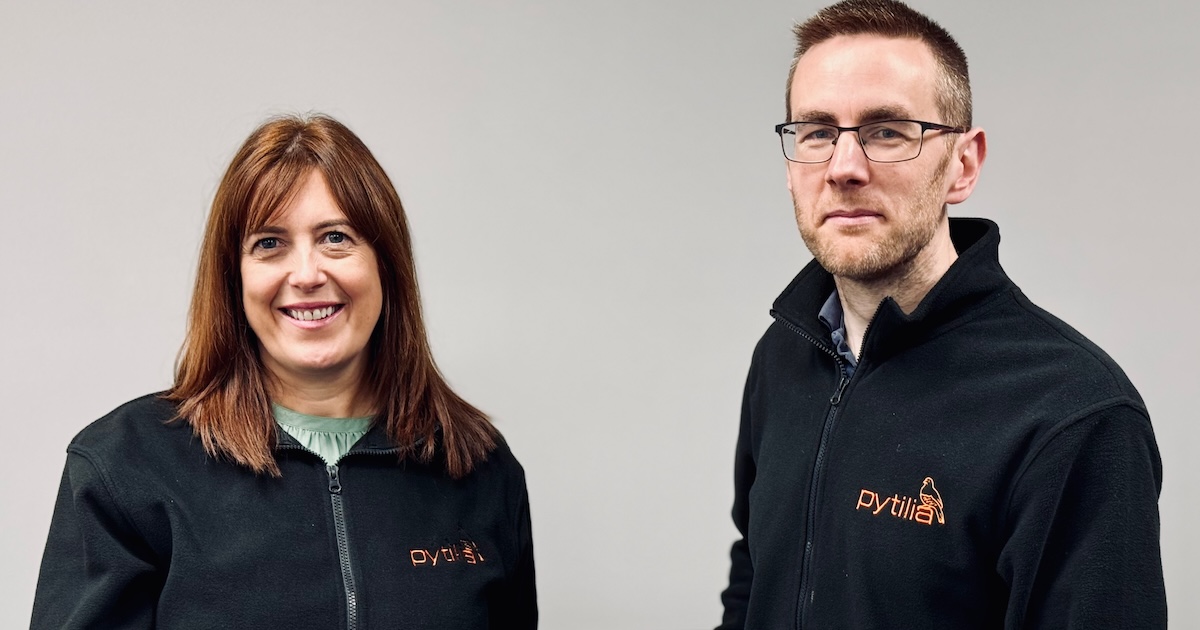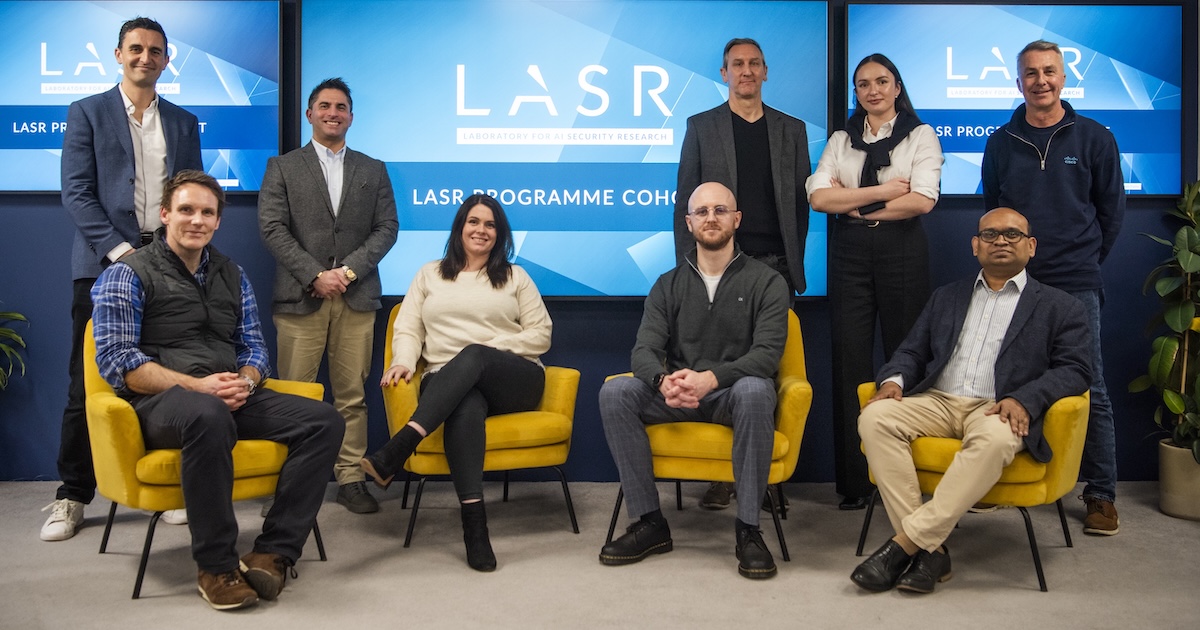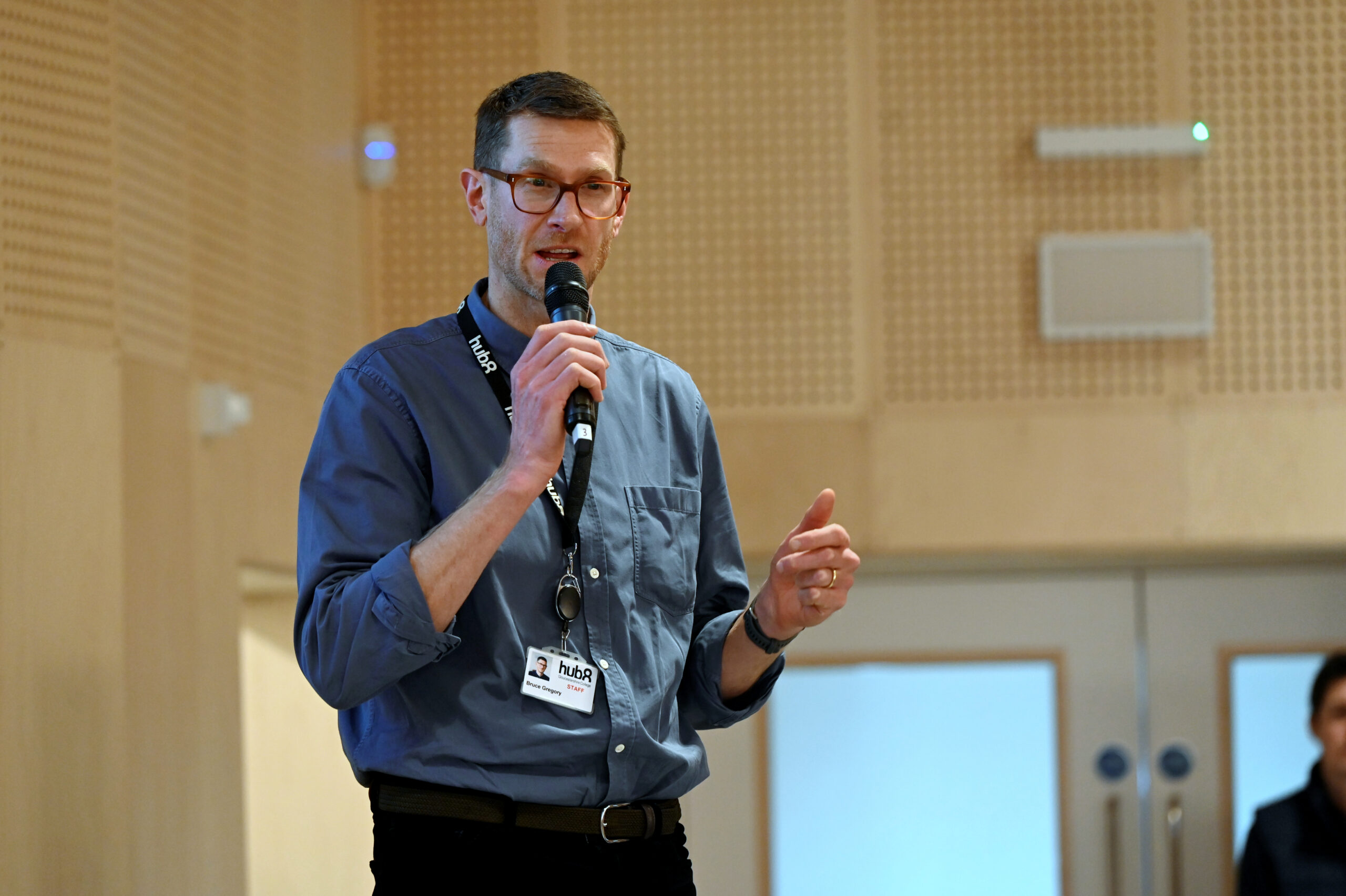In conversation with the co-founders of Pytilia – who participated in Plexal’s LASR Validate programme to accelerate development of next-generation AI security products – we discuss their shared vision, deep understanding of market problems and how they’re safeguarding AI.
In an age where AI is rapidly reshaping industries, the hidden risks within its feedback loops are often overlooked. Pytilia, a Belfast-based technology company specialised in helping companies with digital future-proofing, is confronting this challenge head-on with a secure, data-aware approach to reinforcement learning – a process through which machine learning is trained to make certain desired actions.
Founded in 2020 by Angela Montgomery and Tim Silversides, Pytilia was born out of a long-standing collaboration between two seasoned software leaders. “We’d worked together before and always shared a passion for building collaborative, forward-thinking teams,” Angela explains. “We had a shared vision and trust which made starting our own company feel like the natural next step.”
From the outset, the Pytilia mission was clear: to help organisations realise their ideas and objectives through technically excellent, united delivery teams. But even in those early days, the seeds of a product-led future were being planted. “Working closely with clients gave us deep insight into real-world problems,” Tim reflects. “We’re now using that experience to build our own product ideas.”
From hands-on delivery to product-led impact
As AI adoption continued to rise, the heart of Pytilia’s product portfolio became LoopIQ – an “always learning” feedback engine designed to safeguard AI systems from the risk of malicious or anomalous inputs. It’s a novel approach to a growing problem in machine learning security.
In reinforcement learning, human feedback is used to continuously train models – but bad feedback can poison the system. LoopIQ applies anomaly detection to the feedback itself, helping to deprioritise outliers and maintain the integrity of the learning process.
It’s a deceptively simple concept with far-reaching implications. By reducing false positives, LoopIQ not only boosts team productivity of organisations but also shields systems from manipulation and builds greater trust in AI decision-making.
A secure foundation for critical infrastructure
Pytilia technology is purpose-built for the needs of high-stakes environments. Its work spans anomaly detection, secure feedback processing and compliance monitoring – all underpinned by a commitment to transparency and explainability.
“Without trust in the behaviour of a system with AI elements, end users are more likely to discard its recommendations,” Tim notes.
That commitment is reflected in Pytilia platforms like VIGIL, a hybrid rules-and-AI surveillance system, and MAP, a microservices accelerator platform designed to boost developer productivity while enforcing best-practice architecture.
Putting innovation to test with LASR
For Pytilia, joining the LASR Validate programme aligned perfectly with its mission. “It’s focused on evaluating how we, as a collective, ensure the security of AI – to protect the future of the UK’s critical infrastructure,” Angela says. “This is a conversation Pytilia has the skills and expertise to bring a voice to.”
Through collaborative workshops and speaking engagements, the programme provided Pytilia the means to deepen its sector insights and present its product vision. “LASR Validate gave us the opportunity to present LoopIQ and articulate Pytilia’s background and expertise to organisations operating within critical infrastructure,” Angela continues.
A highlight came during a LASR Lates panel in Cheltenham. “This discussion centred around the challenges for AI security, including data provenance, explainability and how to counter the levels of sophistication being seen in AI-driven cyber-attacks,”she recalls. “It was a great chance to get involved in the conversation and detail Pytilia’s viewpoints on these critical issues.”
Growing with purpose, building for longevity
Looking to the future, Pytilia is carefully managing the shift from a services-led company to a product-driven one. “As an engineering-focused company, our technical capabilities have been our greatest strength,” Tim declares. “However, we recognise that as we transition more towards product development, we’ll need to build our sales and marketing capabilities, which is an area where we have less experience.”
This dual focus is supported by a track record of sustainable growth and innovation success. Pytilia has delivered award-winning projects across fintech, defence and cyber security and continues to expand its reach through collaboration. Tim adds: “We’re particularly interested in connecting with potential partners who bring complementary expertise in areas that would enhance our product offerings or expand our services reach, whether that’s through technical partnerships, channels to market or domain expertise.”
People, purpose and product – in sync
At its core, Pytilia is a company shaped by its values. “We set out to create a place where collaboration, curiosity and high standards are rewarded,” Angela concludes. “It’s fulfilling to create an environment where talented individuals can step up and realise their potential.”
With LoopIQ, VIGIL and MAP in development, Pytilia is laying the foundations for long-term impact in the AI ecosystem – one that prioritises trust, resilience and human-led innovation.


